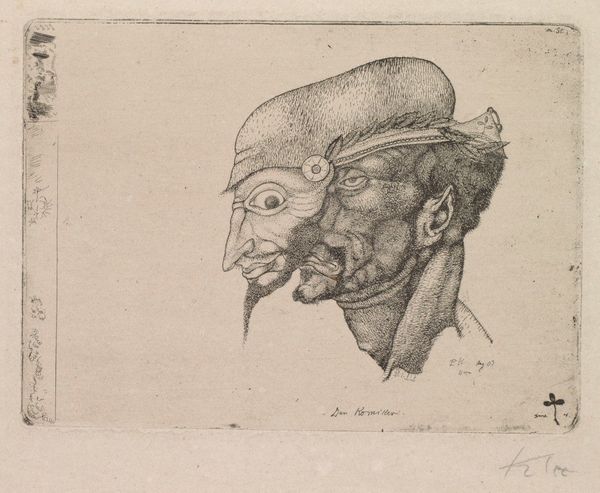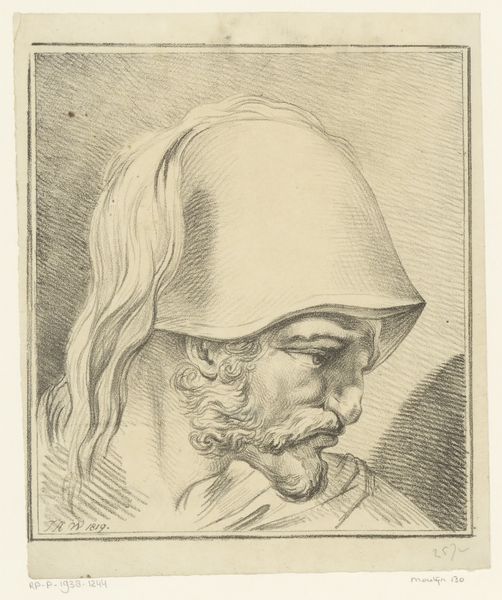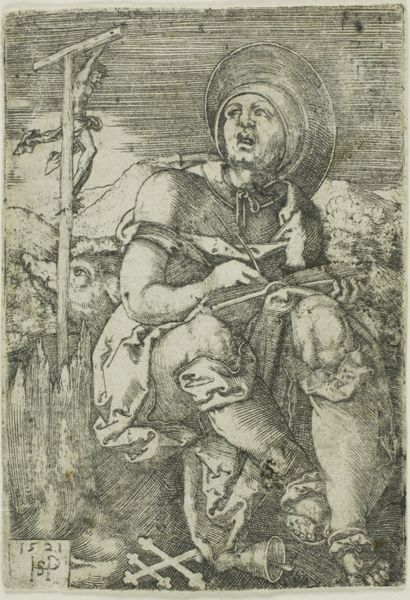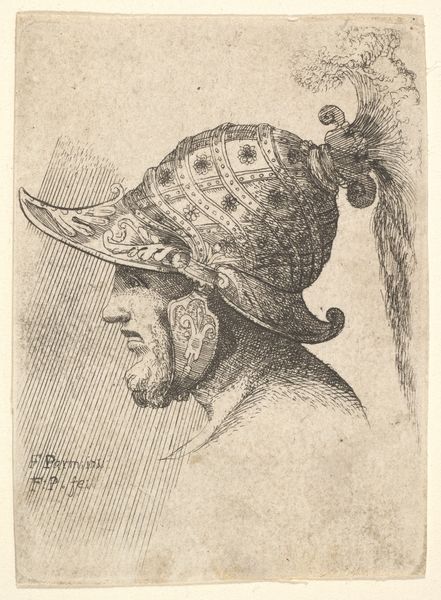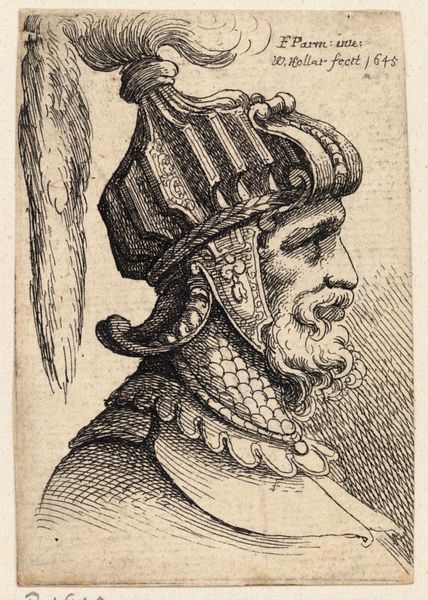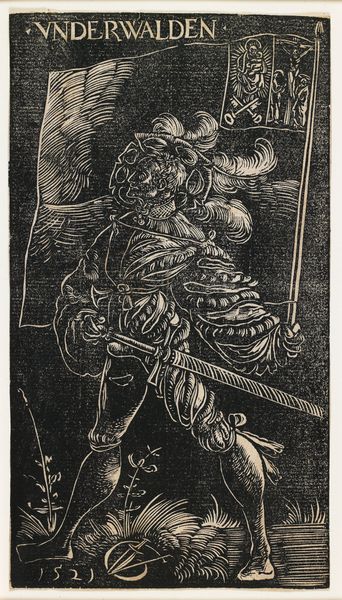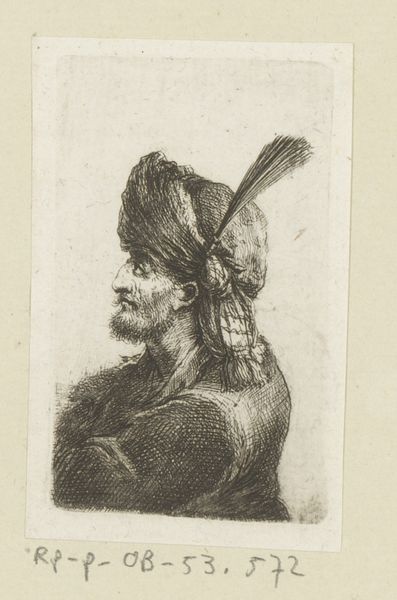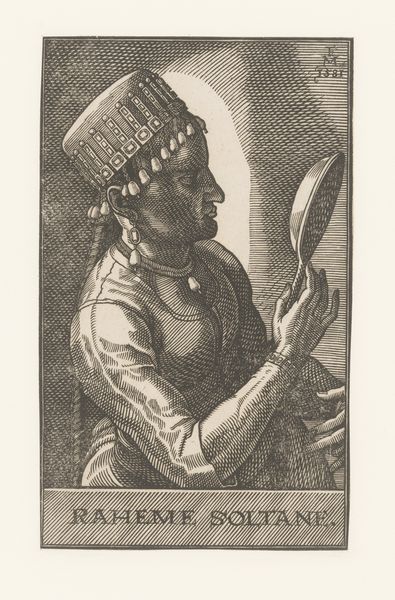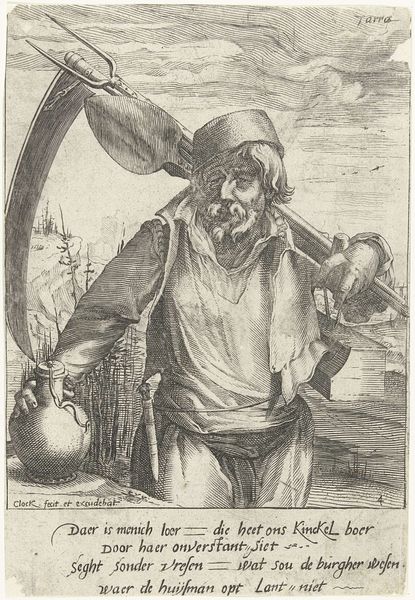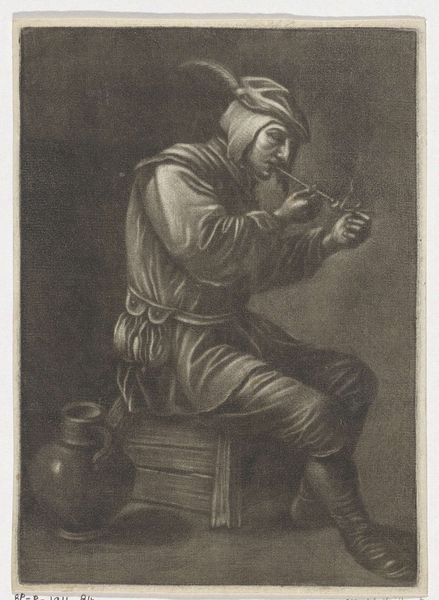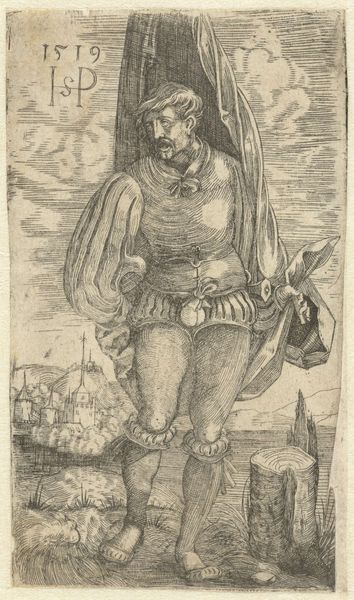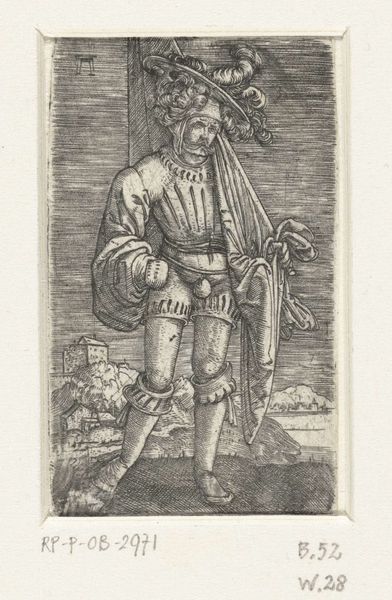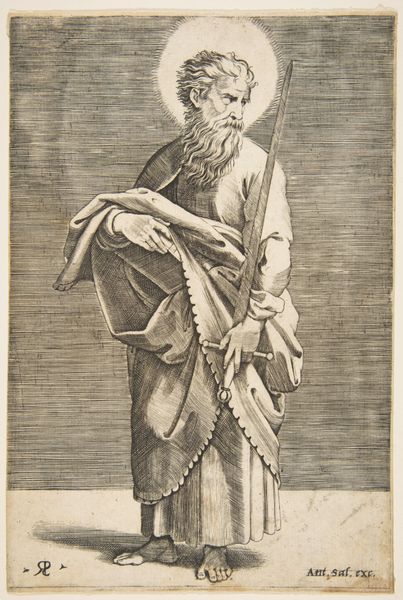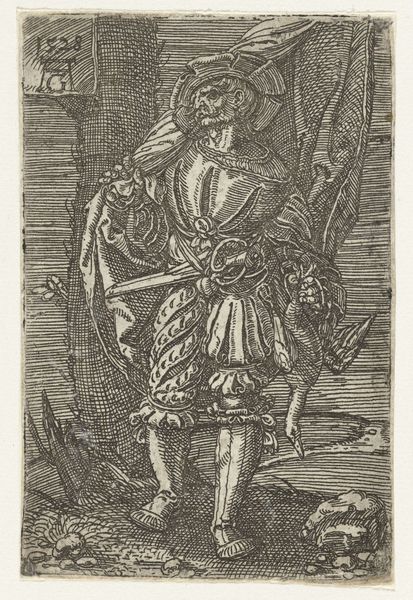
drawing, print, metal, engraving
#
portrait
#
pencil drawn
#
drawing
#
facial expression drawing
#
light pencil work
#
baroque
# print
#
metal
#
pencil sketch
#
caricature
#
charcoal drawing
#
portrait reference
#
pencil drawing
#
limited contrast and shading
#
portrait drawing
#
engraving
Dimensions: height 222 mm, width 168 mm
Copyright: Rijks Museum: Open Domain
Editor: We are looking at "Buste van een gehelmde soldaat," or "Bust of a Helmeted Soldier" by Jan Thomas, created in 1658. It appears to be an engraving. He has such a stern gaze! I wonder, how would you interpret this work considering its time? Curator: This piece, created amidst the shifting political landscapes of 17th-century Europe, reflects the era's fascination with military power and classical virtues. What does the phrase at the bottom, "Pro Deo et Patria" - "For God and Country", suggest to you about its intended audience? Editor: Well, it sounds like a rallying cry, a promotion of loyalty. The figure appears noble, almost like a Roman general...so to be circulated to the masses... Curator: Exactly! It speaks to the burgeoning sense of national identity and the intertwining of religious belief with civic duty that were prevalent then. Notice the detailed rendering of the helmet, seemingly drawing from classical antiquity and its potential propaganda. Consider also that the proliferation of prints allowed imagery and political ideas to circulate to a wide audience and consider the social role of art and the politics of imagery. What feeling do you get when you imagine its role circulating to the public back then? Editor: I never considered how such an image might function as a call to arms. Now I am really seeing how museums shape public perception. This really opens up a lot of questions for me regarding war! Curator: Yes! Seeing this work from a socio-political viewpoint, the bust operates as more than mere aesthetic engagement; it invites inquiry into societal values during times of conflict and consolidation of power. Editor: I now see beyond just the stern portrait and how imagery played a crucial role in influencing public opinion and rallying support for political and religious causes!
Comments
No comments
Be the first to comment and join the conversation on the ultimate creative platform.
